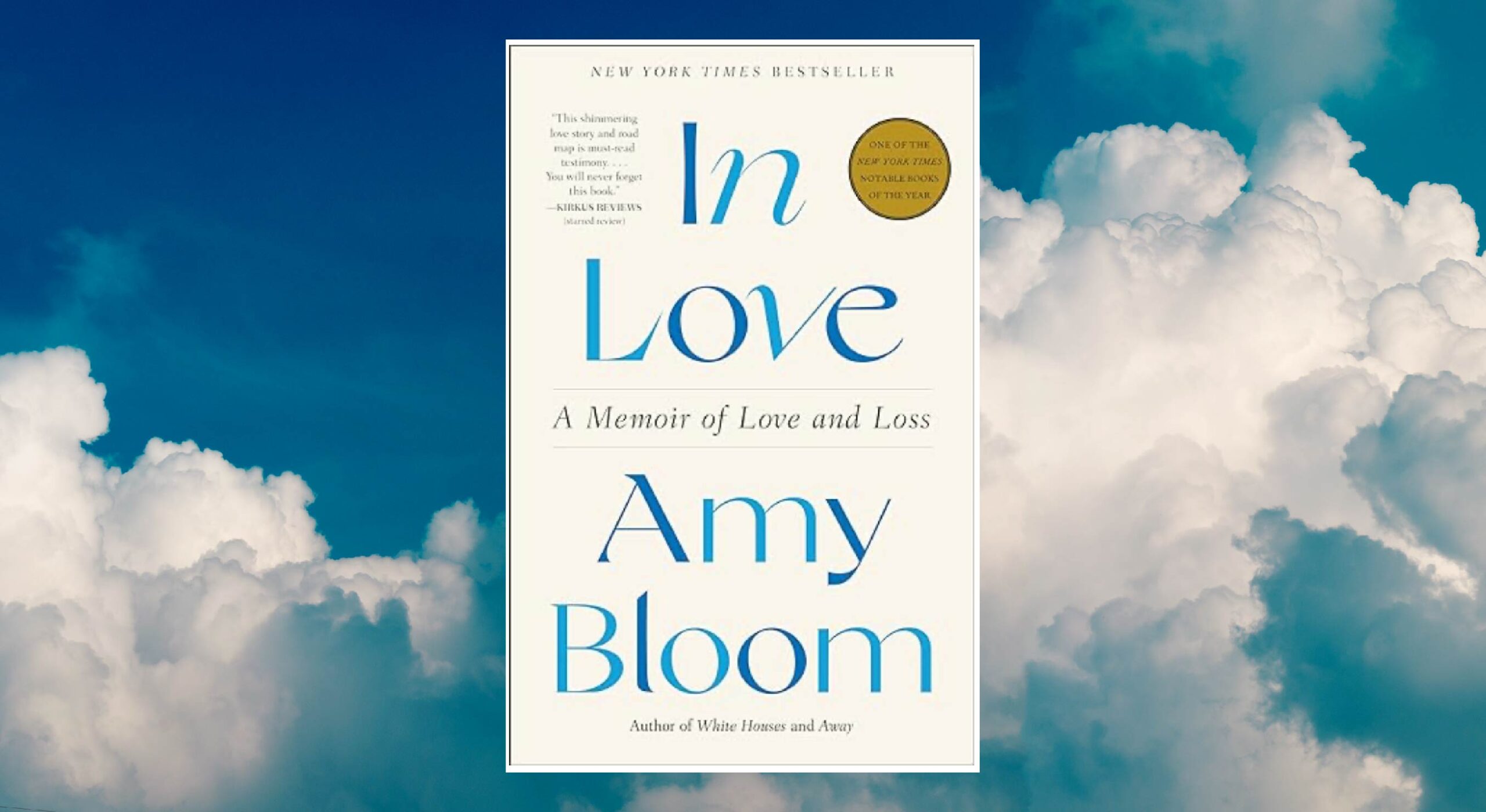What I’m Reading:

You can listen to the audio version of this Musing here.
I have heard it said that when one writes from the heart with raw vulnerability, that their story is at once intensely personal, and also universal—as in, it taps into the human condition we all share. This truth of this kept coming to mind as I read Amy Bloom’s sweet memoir, In Love: A Memoir of Love and Loss.
The book chronicles her husband Brian’s early onset Alzheimer’s diagnosis, and her role in helping him to be approved for medically assisted suicide before the disease progresses beyond the point where he can meaningfully consent.
While most of us—for cultural, legal, and logistical reasons, among others—will never be in the position that Amy is in, I still feel a deep kindred with her. Perhaps I feel this because I have watched those close to me suffer, or perhaps because I have (for other reasons) been forced to navigate the non-sensical bureaucratic hellscape that is the United States’ health care system.
Or perhaps, it is just that I can feel Amy’s love for Brian in the way she talks about him, and I can imagine how hard it must have been to respect his wishes and autonomy enough to let him go. The emotionality of this struggle seeps out of her words.
Throughout the book we see her weeping at dinner, on walks, in the doctor’s office, with Brian, in the car. She says, “I teared up all through dinner, with Brian occasionally patting my hard. I keep crying because I loved him and his appetites and all the sensuality and good humor and heat-seeking that went with them.”
She knows that the things she loves about him—the things that make him him—are slowly fading and that keeping him alive won’t keep him with her. This seems worth repeating. Keeping him alive won’t keep him with her. This realization cuts to the core of who we are as human beings; it touches on the universal. She comments,
“I understand that all happiness is fleeting, but I see now that there is fleeting and then there is the true and wall-like impossibility of ever experiencing this kind of happiness again, even once, even next week, let alone a year from now. Doors are closing around us, all the time.”
Indeed, both Brian and Amy try to explain this to the therapist who is trying to talk them out of seeking death. In Amy’s words, “She says the word joy several times, and Brian and I stare at her. We want joy, we do. We really do. And neither of us thinks that eight years of a steady decline and complete loss of self sounds like joy.”
What I’m Thinking About:

It seems significant that the letter Amy helps Brian write to family and friends about his death closes with, “If you wish to commemorate his life, please make a donation to Planned Parenthood.” Brian served as a volunteer patient escort at their local Planned Parenthood, which is appropriate, but it is more than this. I don’t think that it’s possible to talk about the right to die without talking about other ways in which the rights to bodily autonomy are infringed upon.
The right to an abortion, the right to die, the right to use our bodies/sexuality how we see fit (including to make money), the right to gender-affirming care, and the right to disability access.
Our country, unfortunately, isn’t good at extending any of these rights to its citizens. Amy comments,
“Choosing to die and being able to act independently while terminally ill is a deliberately narrow opening. Many people can’t get through it. They can’t swallow well enough. They can’t talk well enough. They can’t hold the glass or mix the drink on their own. People who wish to end their lives and shorten their period of great suffering and loss—those people are out of luck in the United States of America.”
Anyone who has tried to thread these kinds of needles knows how impossible it is.
Those who seek abortions in some states are not allowed to obtain them after 6 weeks but cannot get in to see a doctor before they hit that threshold.
Children with disabilities are not allowed to be integrated into classrooms without one-on-one support staff, and that staff is often unavailable.
Those with stigmatized mental health diagnoses are unable to access doctors who specialize in their illnesses without prior authorization that can only be given by those same doctors.
I could list more but I don’t need to, most of you will have examples of your own.
Amy rightfully points out, “The right to die in America is about as meaningful as the right to eat or the right to decent housing; you’ve got the right, but it doesn’t mean you’re going to get the goods.”
In a fit of frustration with the process, Brian notes, “This is crazy. It’s my life, I should get to decide how to end it.” He is right, he should.
We should also all get the right to decide how to live.
What I’m Excited About:

October is my favorite month. I love the turn to crisp air and the feeling of leaves crunching under my feet. This past weekend I went with some friends up to Lily Dale, New York, and had a magical experience where I saw the sun shine through the trees while also seeing the leaves gently falling to the ground. Fall is so beautiful!
I am looking forward to spending fall evenings around the fire pit in my yard, traveling to Buffalo and Boston, and connecting with people I love.
I am not a costume person, but I also look forward to taking my little son trick-or-treating and seeing the neighborhood children in their costumes!
Booking & Availability:

Buffalo, NY | Oct 13-15
Boston, MA | Oct 26-29
Pittsburgh in between
Make sure to check out my complete travel schedule on my website.

